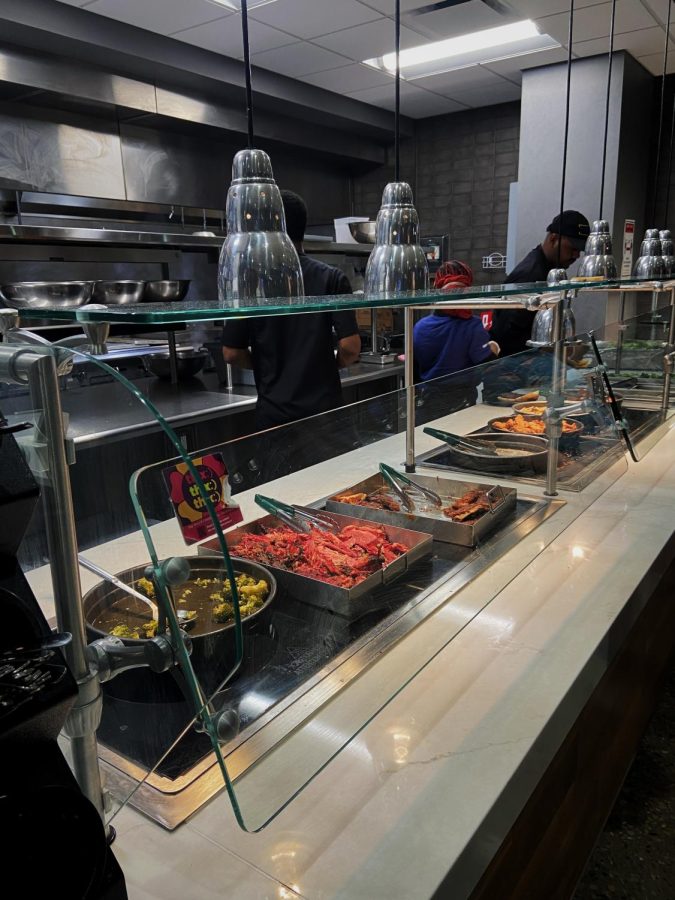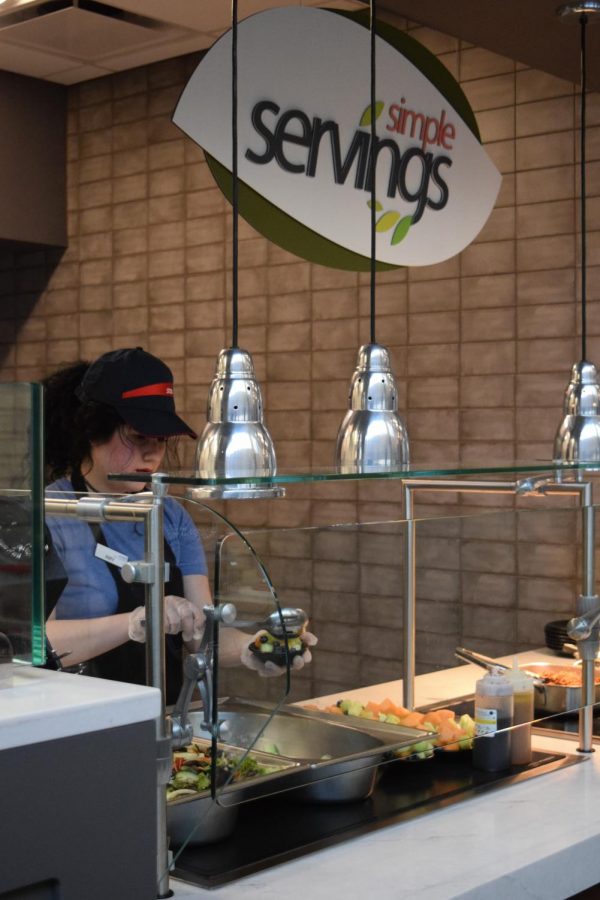
For those students at Marquette dreading the fabled “Freshman 15,” the university has been making an effort to ease those fears in recent years by promoting more health conscious choices in the dining halls. Still, the vast majority of the responsibility falls on students themselves.
Amy Melichar Messman, Marquette’s coordinator of health education and promotion since 2005, said healthy lifestyles are all about the student’s own choices.
“We find that the most difficult aspect of campus eating is decision making and time management,” she said. “Healthy eating requires an effort to eat and make those good decisions.”
In total, Marquette has 17 dining options on campus, with choices for all types of students, including vegetarians and vegans. Some selections the university offers includes three traditional dining halls — Cobeen Hall, McCormick Hall and Straz Tower – as well as 14 destination dining options, which include four cafes.
Barbara Troy, an assistant clinical professor of dietetics, has been a registered dietitian for more than 35 years and a nutrition educator at Marquette for more than 25 years.
“I think the most difficult aspect of eating healthy on campus, especially in a northern state such as Wisconsin, is consuming nine to 10 servings of fruits and vegetables daily,” she said. “Dried and canned fruit as well as baby carrots are some simple foods that keep well in a dorm room or refrigerator.”
Troy also suggested that students take advantage of the farmer’s market days offered throughout the semester.
“I think the more variety of attractive food that is offered, especially of whole (not processed) foods, the greater the likelihood for better nutritional intake by students,” she said.
Zander Morrell, a freshman transfer student in the College of Engineering, said he prefers Marquette’s meal options to those at his previous school, St. Louis University.
“At (St. Louis), we only had one main dining hall, and all of the food was very greasy with little to no variety,” he said. “Even the off-campus options weren’t very good.”
Morrell said he likes the wide variety of options that Marquette has to offer.
“I think a lot of students here don’t realize how good they have it,” he said. “Compared to (St. Louis), the food here is a lot better.”
Karla Padilla, a freshman in the College of Engineering, said she would like to see more take-out options like those at Schroeder and to be more informed of the options at Marquette.
“The take-out containers make me feel less pressured to eat the entire amount,” she said. “It also allows me to save some food for later so I am not as full.”
Messman advises students to visit ChooseMyPlate.gov to calculate how many calories and what types of food they should be eating daily.
“The amount of food you should consume all depends on a person’s body weight, the level of physical activity and certain dietary concerns,” she said.
In addition, Messman said the university provides a full-time nutritionist and dietician, Tracy Betz, in Marquette’s Student Health Service.
“Tracy Betz is a great resource many students don’t know about,” she said. “Any full-time student can make an appointment with her to discuss their health concerns.”
Ella Engles, a freshman in the College of Engineering, had no idea there was a nutritionist on Marquette’s campus. She said it is important for students to know about what they are eating and what is going into their food.
“I think that is why so many other students are so skeptical,” Engels said. “They want to know what they are putting into their bodies.”
Correction: A previous version of this article misidentified the dietician on Marquette’s campus as Tracy Benz. Her name is in fact Tracy Betz. The article also incorrectly referred to Marquette’s Student Health Service as the Student Health Center. The Tribune regrets the errors.






